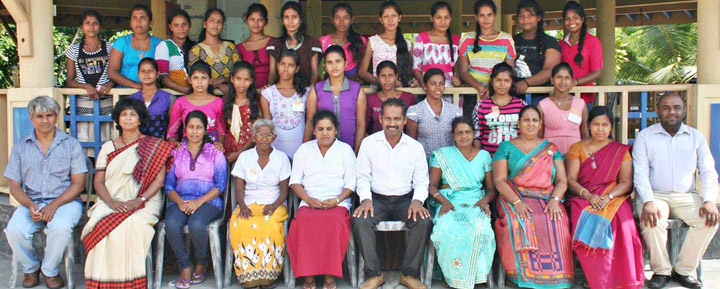Brandix builds community leadership in water management
A new initiative to support young women holding office in
community-based organisations responsible for water management and water
security has been launched by the Brandix Group, as an extension of its
Jalavahini program focussed on women community leaders.
|

The first batch of trainees under the Junior Jalavahini
program with the facilitators. |
Titled Junior Jalavahini, the second phase of the program empowers a
new generation of women with the knowledge they will need in the future,
to become full partners in sustainable water development in areas where
community water projects supply local needs. The program envisages the
provision of financial assistance where necessary, and the imparting of
knowledge, experience and training in areas such as storage and
distribution of water, harvesting of rain water and sustainable water
resources management.
The Jalavahini program was launched by Brandix in June 2012 to train
women in rural communities who have 'hands-on' roles at the grassroots
level in the water sector.
The first training program under the Junior Jalavahini program was
conducted recently at the Coastal Environmental Centre, Kalpitiya. Young
women leaders were present. Among the topics covered were Climate change
adaptation and water management, Gender issues, Financial literacy,
Non-toxic home gardening for livelihood security, Personality
development and Leadership for community development in water.
Head of CSR, Brandix Group, Anusha Alles said, "Although women play
pivotal volunteer roles in community-based organisations responsible for
water distribution in many parts of Sri Lanka, they have little or no
access to the knowledge and advice they need to manage and develop their
projects or to improve their lives."
"Women are also the worst affected in times and areas where water is
scarce.
The Jalavahini and Junior Jalavahini programs seek to systematically
remedy this problem," she said.
Sri Lanka has about 3,500 community-based organisations in the water
sector, functioning at differing levels of success. They are estimated
to be responsible for a sixth of the country's water supply.
|

